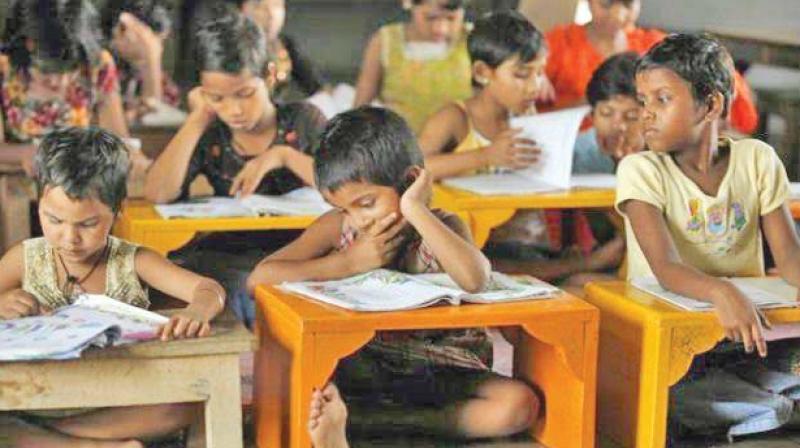Extra Rs 77 crore outgo for Anganwadi salaries
Therefore for the next fiscal, the additional outgo on account of anganwadi' salaries would be Rs 77 crore.

THIRUVANANTHAPURAM: The state government will have to shell out Rs 77 crore additionally to meet the salary expenses of ‘anganwadi’ employees in the state. This is because the Centre has suddenly pulled back from the ICDS project since December 1, 2017. If till then the central share for salaries was 60 percent, now it has been limited to just 25 percent. Result: the state government will have to spend an extra Rs 22.18 crore for the four months between December last and March 31, 2018, the end of the 2017-18 fiscal. Therefore for the next fiscal, the additional outgo on account of ‘anganwadi’ salaries would be Rs 77 crore.
However, social justice minister K.K. Shylaja said that the distancing of the Centre from the ICDS project had not prevented the state from going ahead with its anganwadi modernisation plans. “As part of efforts to create ‘model anganwadis’, funds for building construction have been disbursed to 121 ‘anganwadis’ in the state. Already 83 anganwadis have constructed new buildings,” Ms Shylaja said. If the existing ones are cramped single or two-room entities less than 500 sq ft, the proposed ones will be more than 1500 sq ft with all that is required to make the building child-friendly.
Each one will have a large hall, dining space, wash space, toilets for boys and girls, toilet for adults, a store to keep food and study materials, and also a verandah. “The ‘model anganwadis’ will be converted into 3G anganwadis,” the social justice minister said. In other words, such anganwadis will take care of three generations; besides children between the age of 2 and six, these ‘anganwadis’ will also take care of adolescent girls and women over 60.
The adolescents will be offered personality development classes, coaching for competitive exams, awareness on cyber crimes, health tips, and vocational education. The skills of the older retired women - some would have been teachers, some bureaucrats, some even entrepreneurs – will be leveraged for the benefit of both adolescents and toddlers. “And for these older women, especially if they live lonely lives, these anganwadis can be transformed into a sort of ‘pakalveedu’ (day home) for them,” the minister said.

